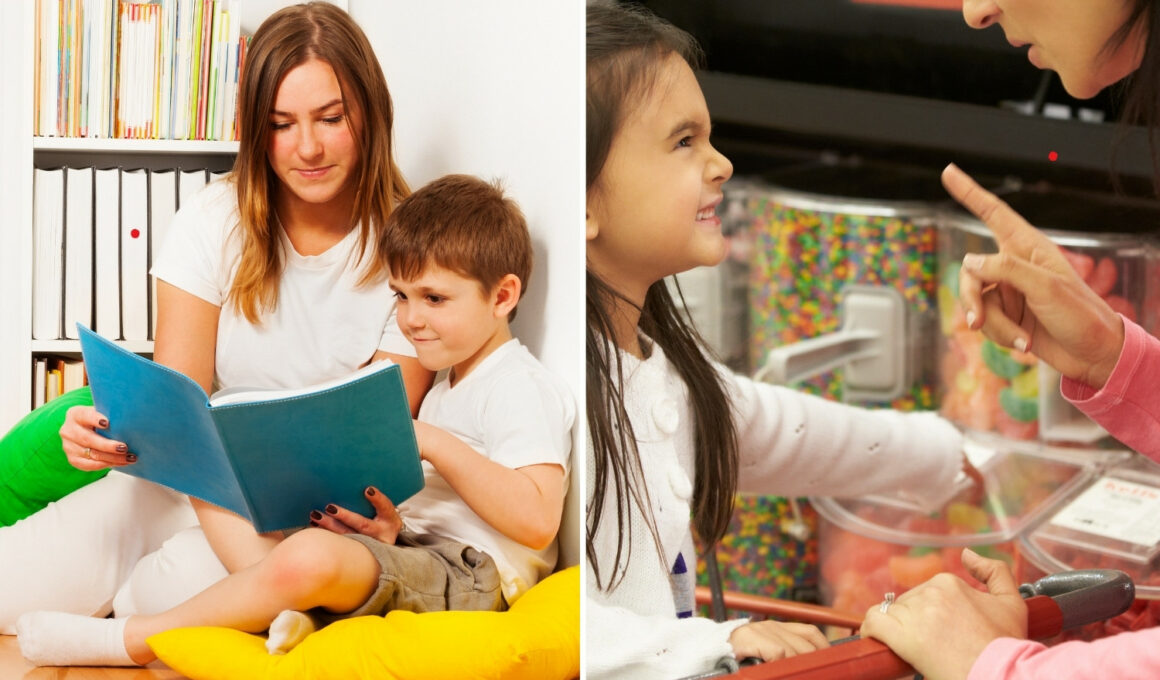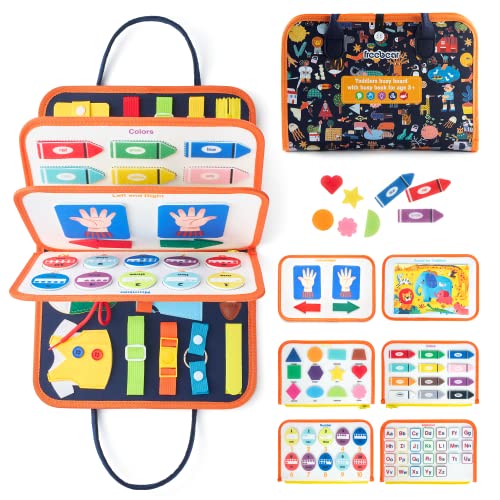In This Article Show
Parenting comes with many challenges and one of the biggest challenges is knowing where the line is between being loving and too lenient. When does nurturing become spoiling? Balance is key, but how can you strike the right balance?
I used to teach at a Reggio Emilia preschool for several years when most of my students were very pampered since they came from extremely wealthy families. I had toddler students who were used to being waited on hand and foot by a team of nannies and maids at home.
But in my class, they learned how to become independent and social while also being nurtured and given a lot of freedom to explore different learning centers and pursue their interests and passions.
Kids can have freedom with limits and be nurtured and encouraged while still learning boundaries and empathy. Nurturing is not spoiling at all.
What Does Being Spoiled Actually Mean?
When people think about “spoiled kids” they’re usually referring to children with overly permissive parents. These children tend to only care about themselves and their needs and are always used to getting their way. They also are less appreciative of the things they have and are less empathetic towards others.
Even though it’s normal for younger children to be more selfish, they need to be taught empathy and consideration for others. If this isn’t taught, the child will have a harder time forming healthy relationships, doing well at school, and will be ill-prepared for adulthood because they don’t know how to take care of themselves and take responsibility for their actions.
Great deals to snatch for your little ones 🎉
The problem with the term “spoiled” is that it sounds like the child has been ruined somehow, but they can always change and learn healthy habits.
That term also makes it sound as if it’s the child’s fault that they are so demanding and only thinking about themselves all the time. It isn’t their fault though. They became that way because their parents indulged them too much.
It’s never too late for a child to learn how to be mindful of others while still being confident and creative. They should learn good habits as early as possible because it can get harder for them to change as they get older.
How to Nurture a Child Without Spoiling Them
You can nurture a child without overindulging them and giving in to their every demand. Your approach will depend on your child’s age and temperament but once you understand the key things to consider, it will be easier to strike that balance.
1. Set Clear Boundaries

Kids need boundaries. Even when I taught play-based learning where kids were allowed to choose what to do all day and could opt out of any group activity such as music class or waterplay, my students still had boundaries.
They could play with any toy they wanted at any time, but they couldn’t throw or snatch toys. They could make a big mess, but they needed to help clean up. Because those boundaries remained the same every single day, toddlers were able to understand and respect those boundaries after the first couple of weeks of school.
Establish boundaries from the start and be consistent with keeping those boundaries. Some easy boundaries to establish can be based on safety and not hitting or throwing things. You can also set boundaries around your child’s eating and sleeping schedule. Explain those boundaries clearly to your child and stay consistent.
2. Communicate With Your Child Frequently

Communication is extremely important when it comes to parenting. Having daily conversations with your child where you ask them how they’re doing, answer questions they might have, remind them you love them, and just keep up with what’s going on with them can help them feel heard and appreciated.
If you have a good relationship with your child, they are more likely to come to you when something is wrong and will trust you and listen to you if you need to talk to them about something important such as being more mindful of others and not throwing toys at their sister.
3. Avoid Overindulgence

A study by researchers at the University of Toledo found that “when toddlers had exposure to fewer toys, they played twice as long with the toys they had and in more sophisticated ways.”
Kids are a lot happier with fewer toys than having the entire toy store in their room. I’ve seen it first hand with my students, where they have every toy they could ever want at home and hardly play with any of them, versus having fewer toys at school but playing with those toys longer and doing more creative things with them.
Instead of buying your child a toy whenever they want, teach them how to wait and earn a toy. Explain what times to expect new toys, such as their birthday, special trips, holidays, and other special occasions. They can also save up for a toy by getting an allowance or helping you around the house.
When a child waits for a special day to get a new toy or do something to earn it, they will appreciate it a lot more and also learn the importance of waiting and saving for something they want.
This can work for anything your child wants from candy to trips to Disney World.
4. Avoid Too Many No’s

On the flip side of not overindulging, you also don’t want to say “no” all the time. If a child hears no all the time, it can negatively impact their self-esteem or make them start ignoring your no’s.
Allow your child to make decisions so that they learn responsibility and feel like they’re being listened to and considered.
You can designate special days when they get to decide things for the family such as meals or movies to watch. Allow your child to make choices about their personal belongings, such as what cup to drink out of or what clothes to wear. This encourages independence and validates their opinions and preferences.
5. Teach Your Child Empathy

Empathy is one of the most important things you can teach your child. Empathy helps people put themselves in other’s shoes and consider others when making choices in their lives.
Empathetic kids are not selfish and will not demand things without considering others. They’re the complete opposite of a spoiled child.
You can teach your child empathy by modeling empathetic behavior. When your child or other family members are upset, acknowledge their feelings and talk things out with them to reach a mutual understanding.
You can also read books to your child and role-play different conflicts with toys so that your child will learn how to resolve conflicts peacefully and see how certain actions like snatching toys and pinching friends can make them feel bad.
Kids need to be loved, nurtured, and listened to so that they grow up to be happy, healthy, confident, and empathetic adults.
Kids can have the freedom to express themselves and pursue their passions while still respecting boundaries and showing consideration for their friends, family, and peers. They just need to be taught these things and see that behavior modeled by the people around them.













